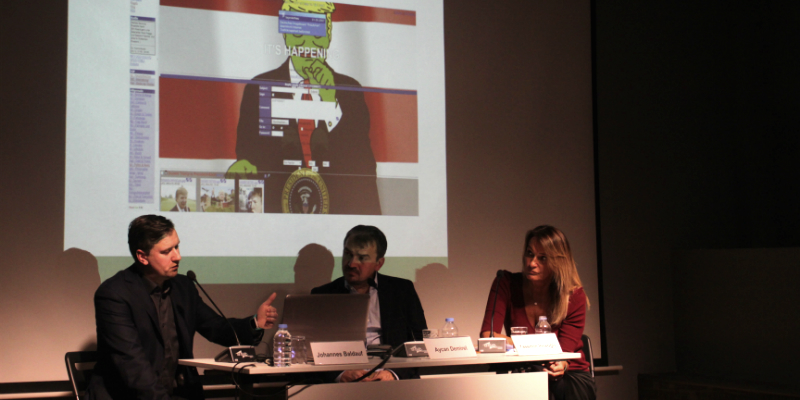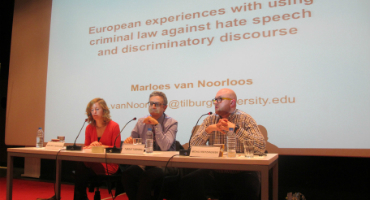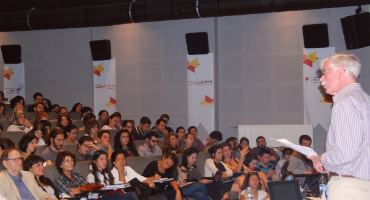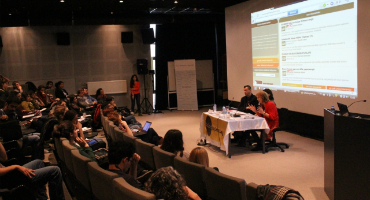Panel discussion titled “Intersecting Discourses, Creative Strategies: Practices of Combating Hate Speech and Anti-Semitism in Germany” organized by ASULIS Discourse, Dialogue, Democracy was held on November 21, 2016 in the Havak Hall of Hrant Dink Foundation. Aycan Demirel from Kreuzberg Initiative against Anti-Semitism (KIgA) and Johannes Baldauf from Amadeu Antonio Foundation (AAS) participated in the panel discussion moderated by Yasemin İnceoğlu. Strategies and experiences of combating neo-Nazi racism, hate speech and anti-Semitism in Germany were discussed.
After a short video introducing the ways in which KIgA is combating racism and anti-Semitism in Germany, Aycan Demirel stated that anti-Semitism is a more comprehensive notion that includes hatred against Jews and Jewish institutions (secular or religious). Furthermore, he pointed out that anti-Semitism gained another dimension with the perception of Israeli state as a Jewish collective over years and the association of state’s political and military policies with the Jewish identity. Stating that anti-Semitism in Germany emerges in relation to two issues, Demirel defined one of those issues as resistance against commemorating and confronting the history and the other one as a tendency to see National Socialism as equivalent to Israel, which is a phenomenon emerged especially in 2000s.
Demirel stated that KIgA tries to emphasize that Muslims are not the bearers of anti-Semitism and it is rather a problem that the majority of the society has. He also said that the media that regards Muslims as responsible for anti-Semitism should be more careful about this discourse that might lead to anti-immigrant movement and the statements regarding Muslims as responsible in the public sphere are also dangerous and most of the time not true.
Second speaker Johannes Baldauf talked about his projects on right-wing extremism and anti-Semitism on social media. He noted that there is a significant increase in the attacks against refugee camps and online environment facilitates such attacks. Stating that the notion of hate speech includes right-wing extremism, racism, conspiracy theories and anti-Semitism, Baldauf told that the hatred is directed to NGOs, politicians and those who make efforts for social justice as the number of refugees is decreased.
Pointing out that symbols and codes that are not directly associated with Nazis are used in social media, Baldauf stated that young people feel closer to right-wing extremism and racism through such references to popular culture rather than traditional symbols. He noted that there are many social media networks and although some of them can be used for monitoring hate speech, the current methods are not enough. He stated that technical possibilities are important for combating hate speech on internet and we have to think about how we can make use of those possibilities in combating right-wing extremism and racism.






